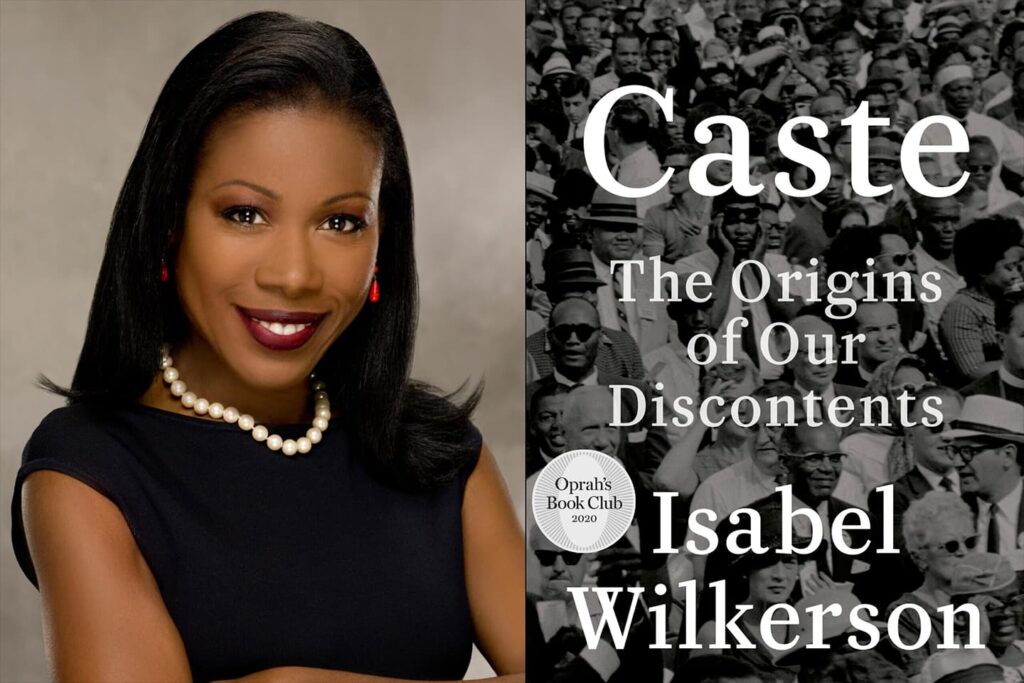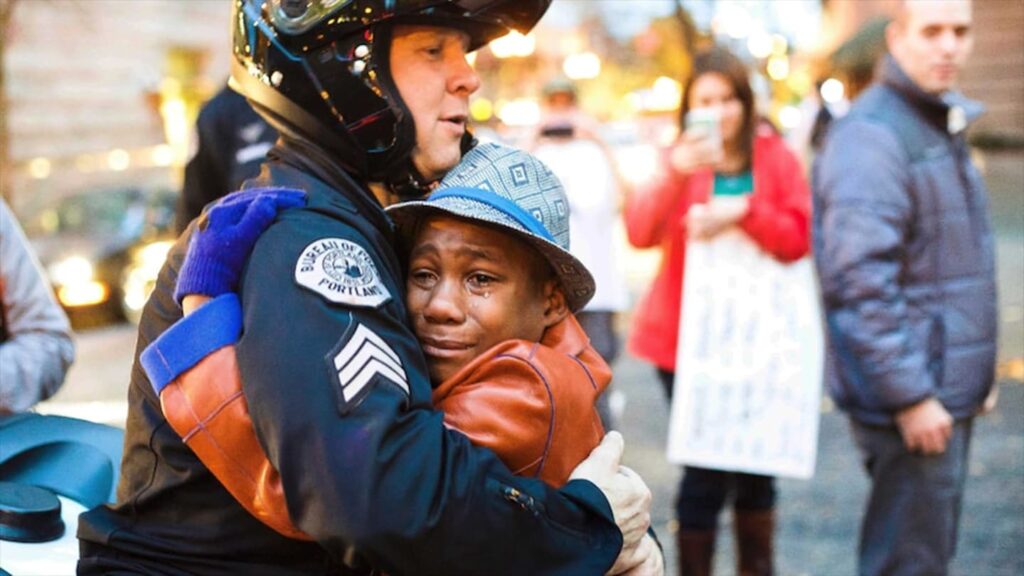
- This event has passed.
Caste: The Origins of Our Discontent | Book Talk with Rev. Connie Siefert, Part One
July 7, 2021 @ 7:00 pm – 8:00 pm
In August of 2020, Isabel Wilkerson published Caste: The Origins of Our Discontent. In May of 2021, I read it. It is not an easy read. It is not for the faint of heart. It is not for those who do not want to face the reality of racism—in the past, in the present and how it moves with us into the future; unless we read this book, heed her insights and make some changes.

As I read the opening chapters, I became painfully aware of the relentless nature of racism for people of color—not just here in the United States but the pervasive stigma that follows them no matter where they are in the world. Isabel explores the roots of this racism throughout world history and in American history beginning with the genocide of Native Americans, followed by the enslavement of Africans. The superiority of “white” skinned people has been woven into our every day lives since before the first colonists set foot on this continent. It is with us still in ways we rarely acknowledge and are barely aware of. The implicit bias within those of us with “white” skin makes it nearly impossible to comprehend what it is like to live with a sense of inferiority that is reinforced daily..Ms. Wilkerson counters the popular misinformation and disinformation which enables us to deny and ignore the reality of racism with deep understanding and well-researched analyses. She take us deep into the fiber and fabric of racism, if we let her.
Case in point:

This photo went viral in 2014. Michael Brown, a young, unarmed black man (who was supposed to start college 2 days later), had been killed by a white police officer. To this day, no one knows exactly what happened—only that Michael was dead with at least seven bullets in his body. The officer who shot him was not found guilty. This set off many protests including the one pictured above where a young black man named Davonte is seen hugging a white officer.
This photo was hailed as a sign of hope in the midst of unrest and protests. Maybe we could improve race relations in the wake of Michael Brown’s death and the jury’s not guilty verdict. Unfortunately, the black boy hugging the white officer in this picture was not the hopeful and harmonious reality it appeared to be. Davonte himself would soon be dead.
He and five other children of color had been adopted by two “white” women. The children were home-schooled and often taken to public events such as Bernie Sanders’ rallies and this kind of public protest, to promote the ideal of how harmonious inter-racial relationships could be. The two white women were applauded for their parenting. The ugly truth was that these six children were virtual prisoners of the two white women who were doing it for the money. The children were physically abused, neglected and starved. Neighbors called Child Protective Services about one incident. One of the women was indicted for child abuse. But she served no time and none of the children were taken away. However, Child Protective Services was building a case and closing in to rescue the children. Before that could happen, the two women loaded everyone in a van and did a “Thelma and Louise” drive off a cliff killing all six children and themselves.
After reading this story, outrage at these “white” women stuck in my throat. Grief for those six innocent children flooded my heart. The tears I needed to cry were dammed up by shock that paralyzed my soul. How could anything like this happen—anywhere in the world, but especially here in the United States? The compassion I would like to free up and try to share with people of color for incidents like this is overwhelmed by profound sorrow and buried under shame. But we must find a way to talk about stories like this. Sorrow and shame must not prevent us from having the difficult conversations we need to have about the reality of racism and where we want to go from here.
Most white people are not intentionally racist. But the unexamined assumption that light skin is superior to dark skin affects the way we relate to each other whether we like it or not, whether we are aware of it or not. White supremacy is at the heart of current events and notoriously alive and well in our justice system. Isabel’s insights and cutting edge thinking may help us to move toward ending racism. This is a must read for all who want to understand and end racism—as in all those who are part of the new Poor People’s Campaign. Here is a quote from Chapter 2 that sums it up.
The inspector trained his infrared lens onto a misshapen bow in the ceiling… The house had been built generations ago… the welt in the ceiling became a wave that widened and bulged despite the new roof. It had been building beyond perception for years. An old house is its own kind of devotional, a dowager aunt with a story to be coaxed out of her…With an old house, the work is never done, and you don’t expect it to be.
There will be an online discussion group on Wednesdays in July (7, 14, 21, 28) at 7 p.m.
Please email andrucilla3@gmail.com for the zoom link if you are interested in participating.
Group will be limited to 12 participants. It will also be repeated.
Please see the attached Study Guide.
Caste Online Book Discussion(PDF 1MB)
See also Isabel Wilkerson and Rabbi Angela Buchdahl on “Caste” from the Museum of Jewish Heritage in New York:
